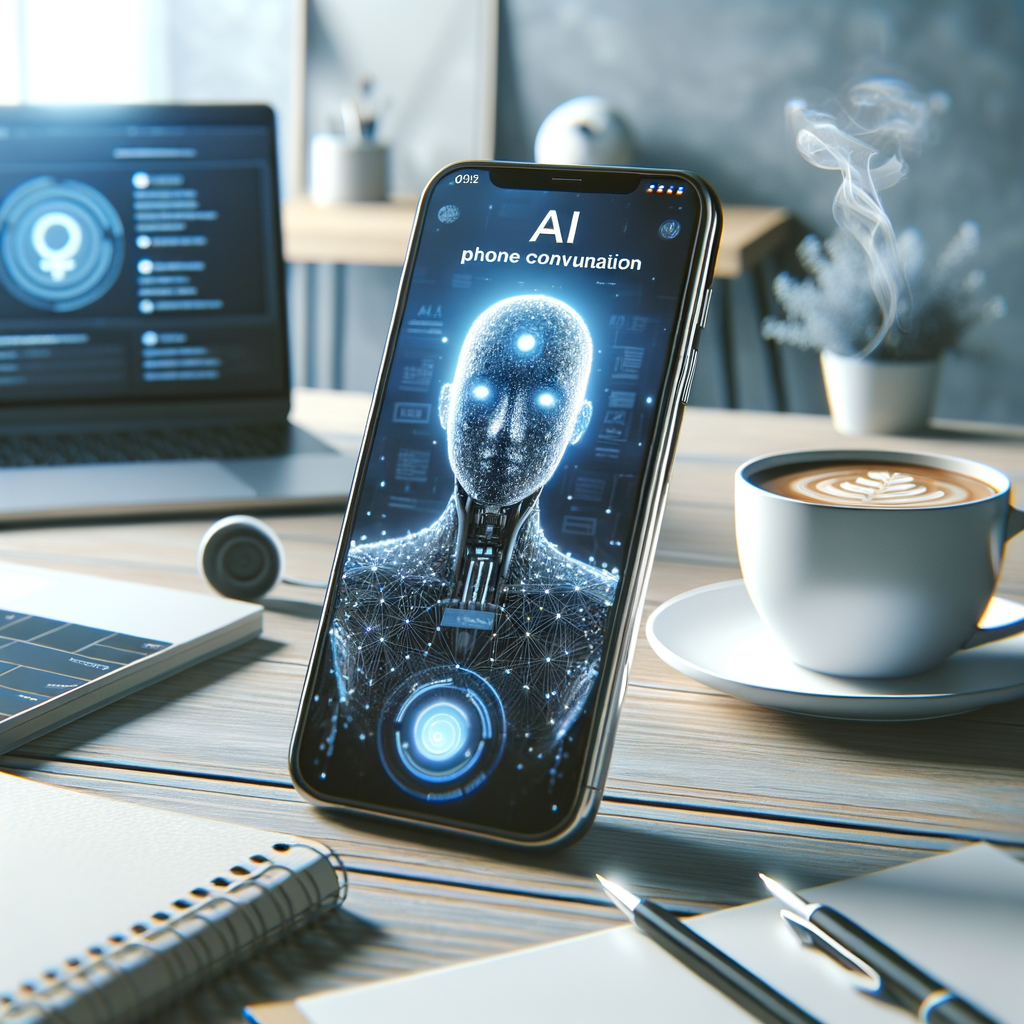AI Phone Calls and Their Role in Remote Work Communication
AI Phone Calls and Their Role in Remote Work Communication

AI Phone Calls in the New Normal – Remote Work Benefits!
The Evolution of Communication
Remember the days of squashed landlines and expensive long-distance calls? Well, those days are long gone, thanks to the rapid evolution of technology! Now, we’ve entered a world where artificial intelligence (AI) isn’t just a sci-fi concept; it’s our next-door neighbor in the realm of communication.
What Are AI Phone Calls?
AI phone calls leverage machine learning and natural language processing to facilitate conversations with users, either through voice or text. These calls can be fully automated or serve to enhance human interaction, making them an integral tool for businesses today.
How They Work
Ever wondered how those virtual assistants like Siri or Google Assistant seem to know what you want? Through a series of algorithms and voice recognition technologies, AI phone systems can interpret what you say, process it, and return a coherent response. They understand context, tones, and even emotions!
The Rise of Remote Work
With the pandemic reshaping our work environments, remote work has transitioned from a temporary solution to a permanent paradigm for many. This shift has made AI phone calls an essential tool for maintaining effective communication among teams.
Why Remote Work is Here to Stay
More companies are recognizing that employees are just as productive (if not more so!) at home. With flexible hours and the ability to work in pajama pants, who wouldn’t want to join in? This has led to the rising importance of tech solutions, including AI phone systems, to keep businesses running smoothly.
The Benefits of AI Phone Calls in Remote Work
1. Enhanced Efficiency
Imagine a world where your meetings are scheduled without the back-and-forth emails. With AI phone calls, this is now a reality! These systems can manage calendars, send reminders, and even optimize scheduling by considering everyone’s availability.
2. Cost Savings
Memory lane: remember when every phone call could add up? AI phone calls cut down on costs significantly. By automating responses and queries, businesses save on manpower and resources, allowing for capital to be allocated elsewhere!
3. 24/7 Availability
Your customers don’t just need assistance during business hours. AI phone systems can operate around the clock, answering questions and resolving issues, making your customer support truly frictionless!
4. Personalization
Have you ever wondered why your shopping experience feels tailored just for you? AI phone calls can remember past interactions, making them capable of providing a customized experience, which boosts customer satisfaction!
5. Data Gathering
AI doesn’t just assist humans; it learns from them too! By analyzing call data, trends, and customer preferences, businesses can make informed decisions to improve their services. Think of it as having a super-intelligent assistant on your team.
Challenges of AI Phone Calls
1. Miscommunication Risks
AI can be incredibly sophisticated, but it’s not perfect. There may be instances of miscommunication, especially in complex situations. Users might find themselves frustrated if their needs aren’t accurately understood.
2. Lack of Emotional Intelligence
While AI can analyze tones, nothing beats human empathy. A computer can’t truly understand feelings. That’s where the balance needs to be struck—effective AI implementation alongside human oversight.
3. Technology Dependence
Relying too heavily on AI can lead to a loss of personal touch in communication. It’s important to remember that sometimes, nothing beats a genuine human conversation.
Future Trends in AI Phone Calls
The future is bright when it comes to AI phone calls! Innovations are constantly on the horizon. Some trends we can expect include:
1. Increased Integration with Other Tech
As businesses adopt more AI technologies, integration will become seamless, making operations smoother than ever. Imagine an AI that works harmoniously with your CRM and customer support platforms!
2. Advanced Voice Recognition
With advancements in voice recognition technology, expect AI to understand various accents, dialects, and even languages beyond just English. This could create a truly global communication network.
3. Enhanced Security Measures
As with all tech trends, security is paramount. Future AI phone systems will likely incorporate advanced security features to protect against data breaches and fraud, ensuring customer trust remains intact.
Conclusion
AI phone calls are revolutionizing the way we interact in the new normal of remote work. They enhance efficiency, save costs, and offer 24/7 support—who wouldn’t want these benefits? While challenges remain in terms of miscommunication and emotional intelligence, the potential for growth and development in this field is immense. Adaptability and human oversight will play vital roles in future implementations, ensuring AI complements rather than replaces the human touch.
FAQs
1. How do AI phone calls improve efficiency?
AI phone calls automate repetitive tasks like scheduling, allowing for quicker responses and reduced workloads for human employees.
2. Are AI phone systems expensive to implement?
While there may be initial costs, AI phone systems can save money in the long run by reducing labor costs and enhancing productivity.
3. Can AI phone calls understand different languages?
Yes, many AI systems are currently being developed to understand multiple languages and dialects, broadening their accessibility.
4. Will AI phone calls replace human interaction?
While AI can handle many tasks, it’s essential for businesses to strike a balance; some situations will always require human empathy and understanding.
5. What are the future trends for AI phone calls?
Future trends include enhanced integration with other technologies, improved voice recognition, and advanced security measures to protect user data.

